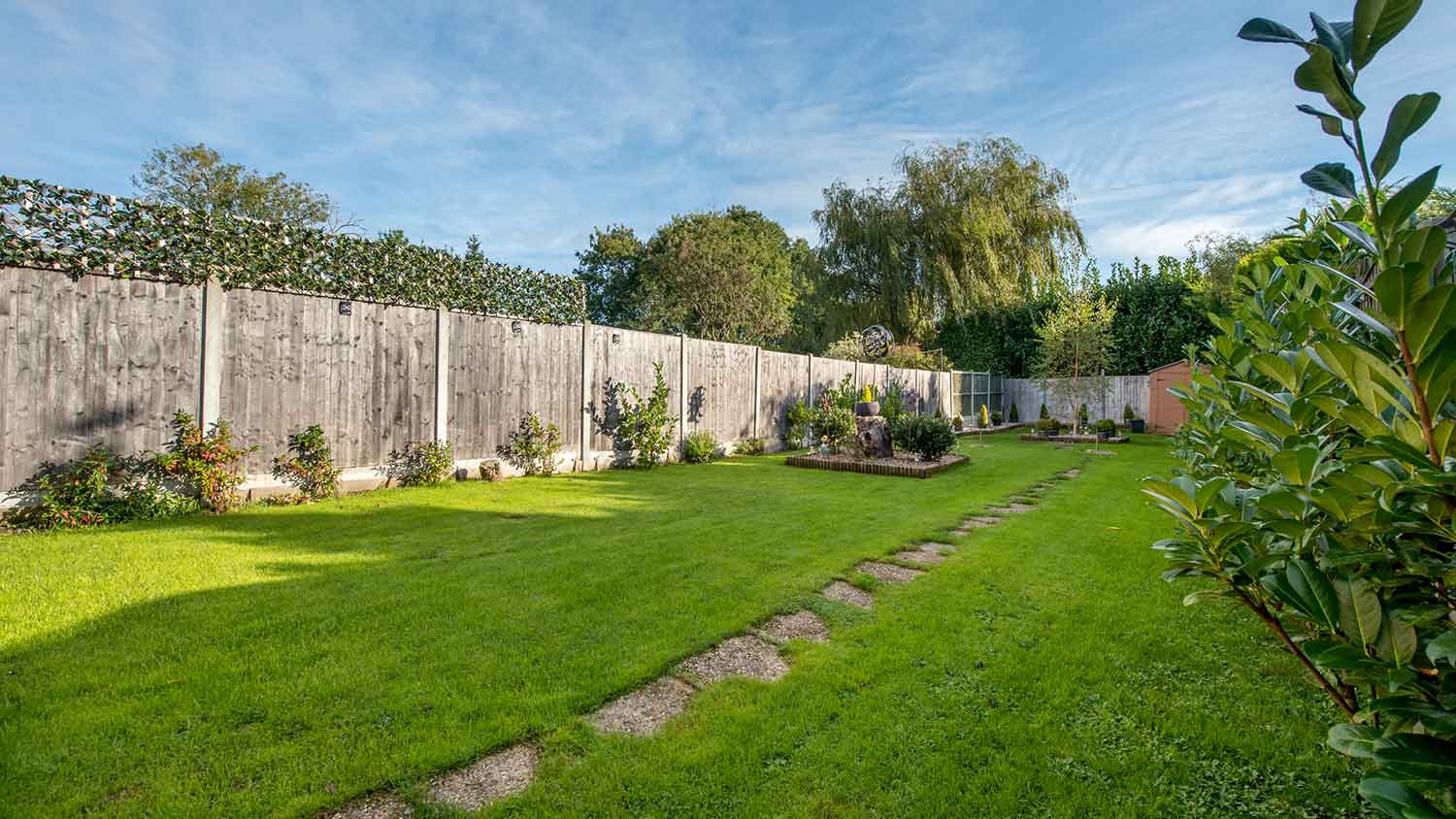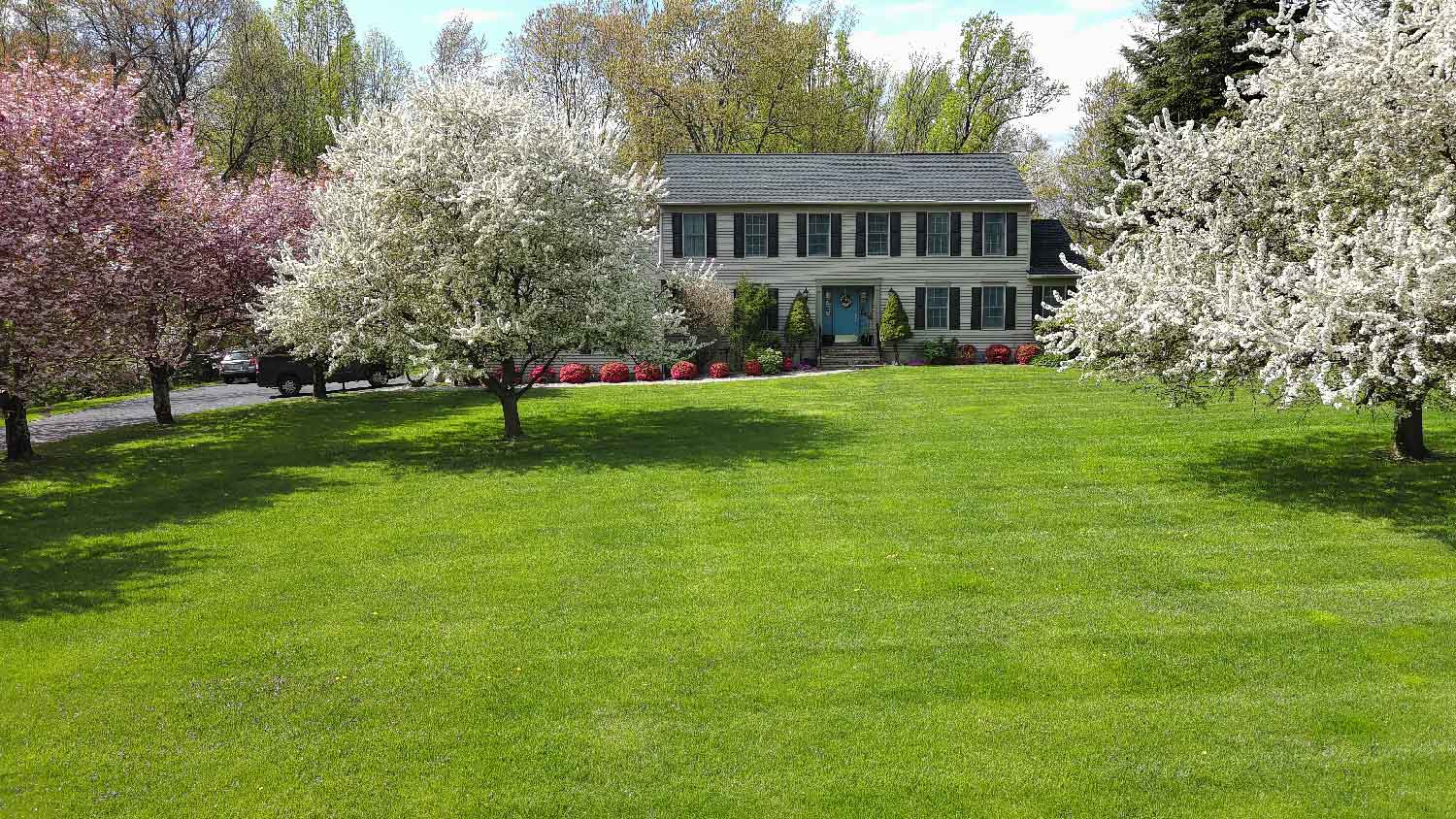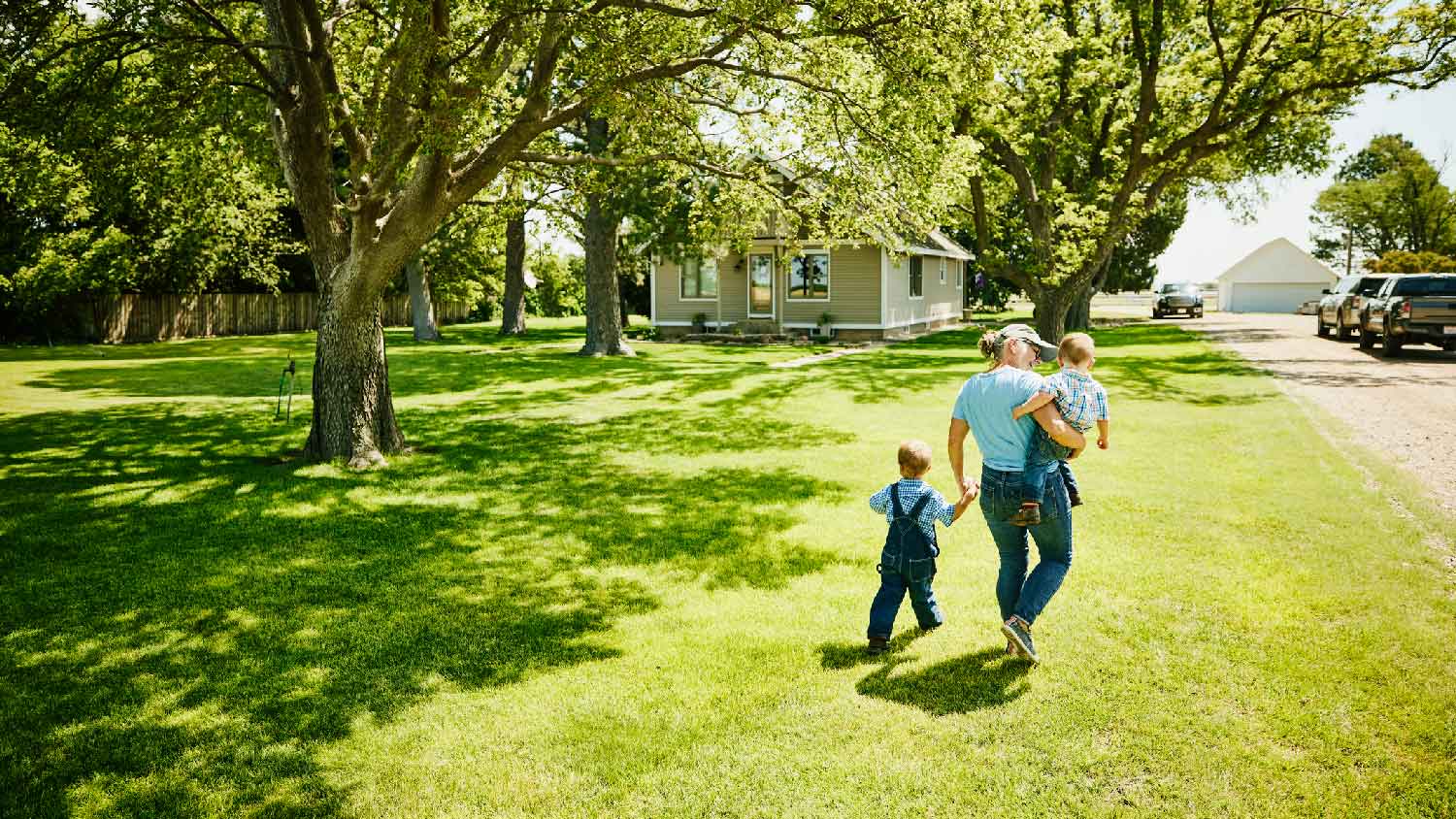Why Is Moss Growing In My Lawn? 5 Reasons Why Moss Is Taking Over
Don’t let your lawn moss mystify you
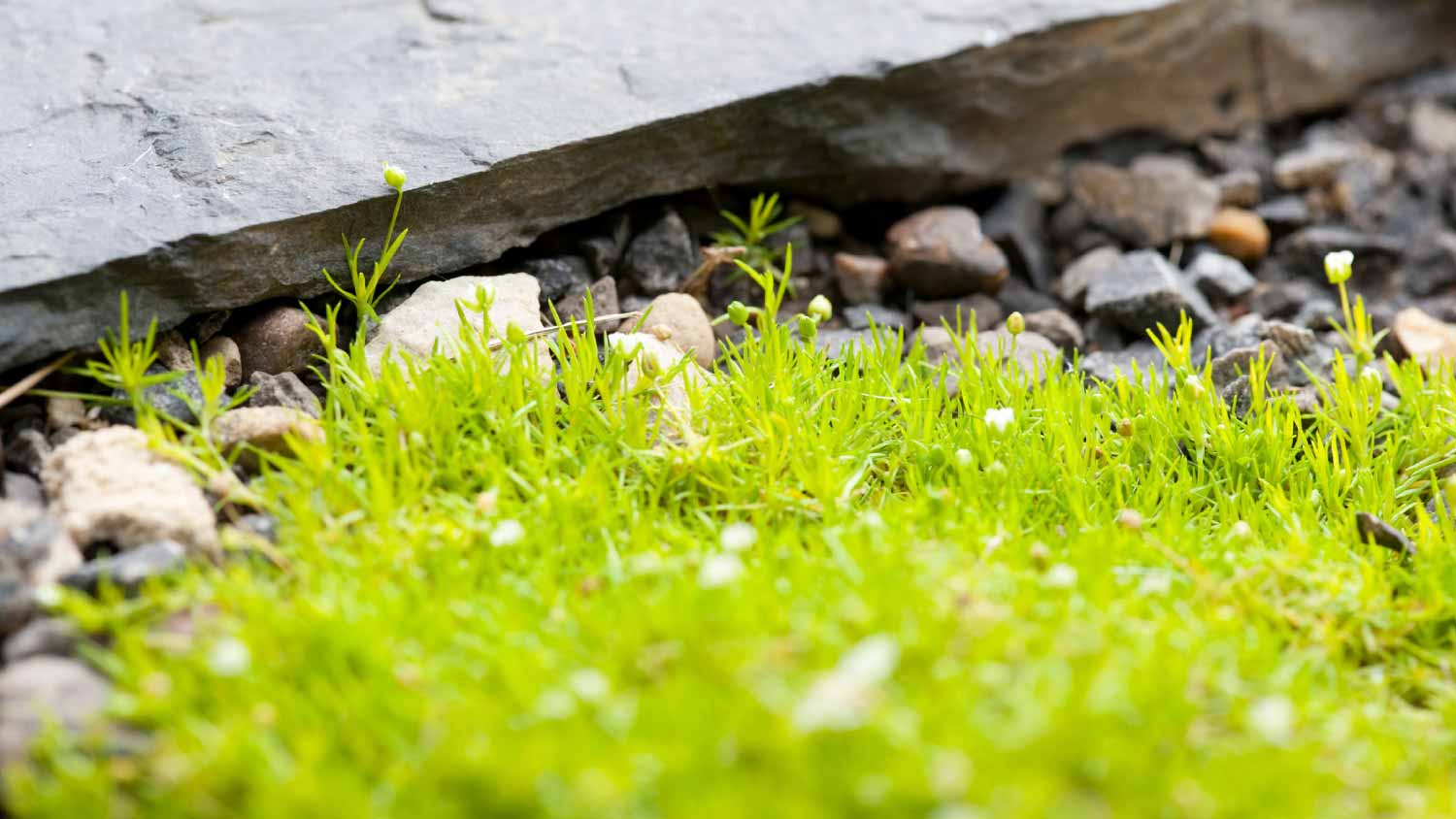

Poor soil nutrients or low soil pH levels can cause moss to take over.
Shade, moisture, and thatch buildup can also promote moss growth.
DIY solutions for minor moss growth are possible.
Hire a pro for widespread moss growth in your yard.
A lush, green lawn can give you a sense of pride—especially if your neighbors’ lawns are all weed-free and perfectly manicured. Moss growing in an otherwise perfect lawn can be a thorn in your side. If you’re wondering, “Why is moss growing in my lawn?” it’s probably due to poor soil or too much moisture. This guide explains why moss grows and how you can get rid of it.
1. Poor Soil Nutrients
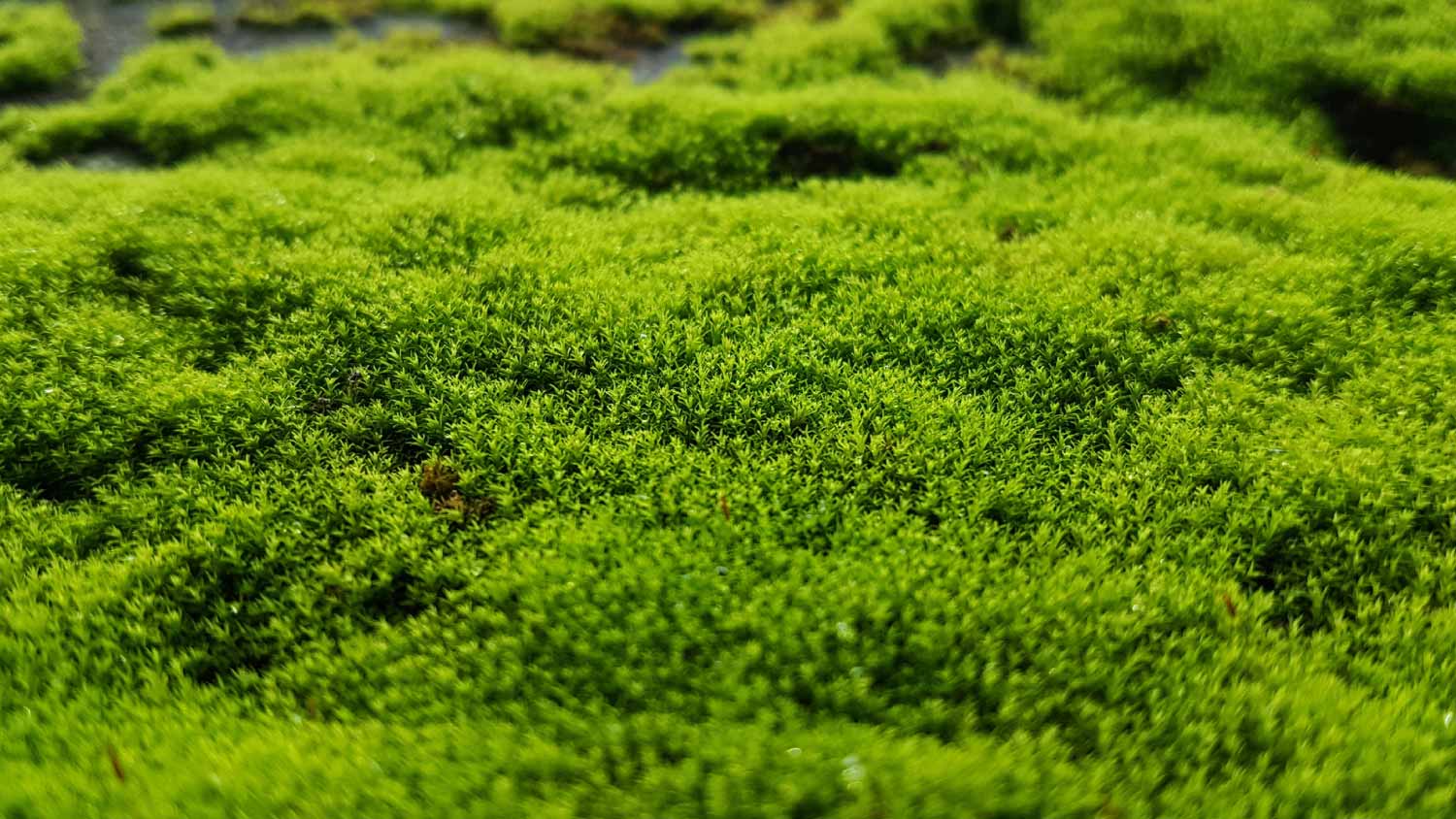
The main cause of moss growing in a lawn is poor soil. Turf grass requires nutrients like nitrogen, potassium, and phosphorus to grow well. If your lawn lacks these nutrients, you may see your lawn taken over by moss instead of grass.
The Solution
Test your soil to determine its nutrient makeup, then follow a lawn fertilizing schedule to help make the soil more amenable to grass growth.
2. Low Soil pH
Low pH levels cause soil to become acidic, encouraging moss growth and making it harder to grow grass successfully. Turf grasses don’t do well in acidic conditions, allowing moss to elbow in and take over the lawn.
The Solution
Test your soil’s pH either by sending a sample to your local cooperative extension office or using an at-home test. Keep in mind that the results of an at-home test will not be as accurate as a professional test. Depending on the test results, you might need to apply a lime treatment to the soil to lower its acidity.
3. Heavy Shade
Shade is great for providing a respite from the summer heat, but it also creates the ideal environment for moss to grow. Many grass species struggle to grow in heavy shade, while moss thrives in these conditions. If your yard is mostly shade, you might struggle with moss growth.
The Solution
Cutting down the trees in your yard is the best way to remove shade and let grass grow. If you don’t want to get rid of your trees entirely, trim them back instead. Aim to allow at least six hours of sunlight to reach your lawn to encourage grass growth and prevent moss from taking over.
4. Excessive Moisture
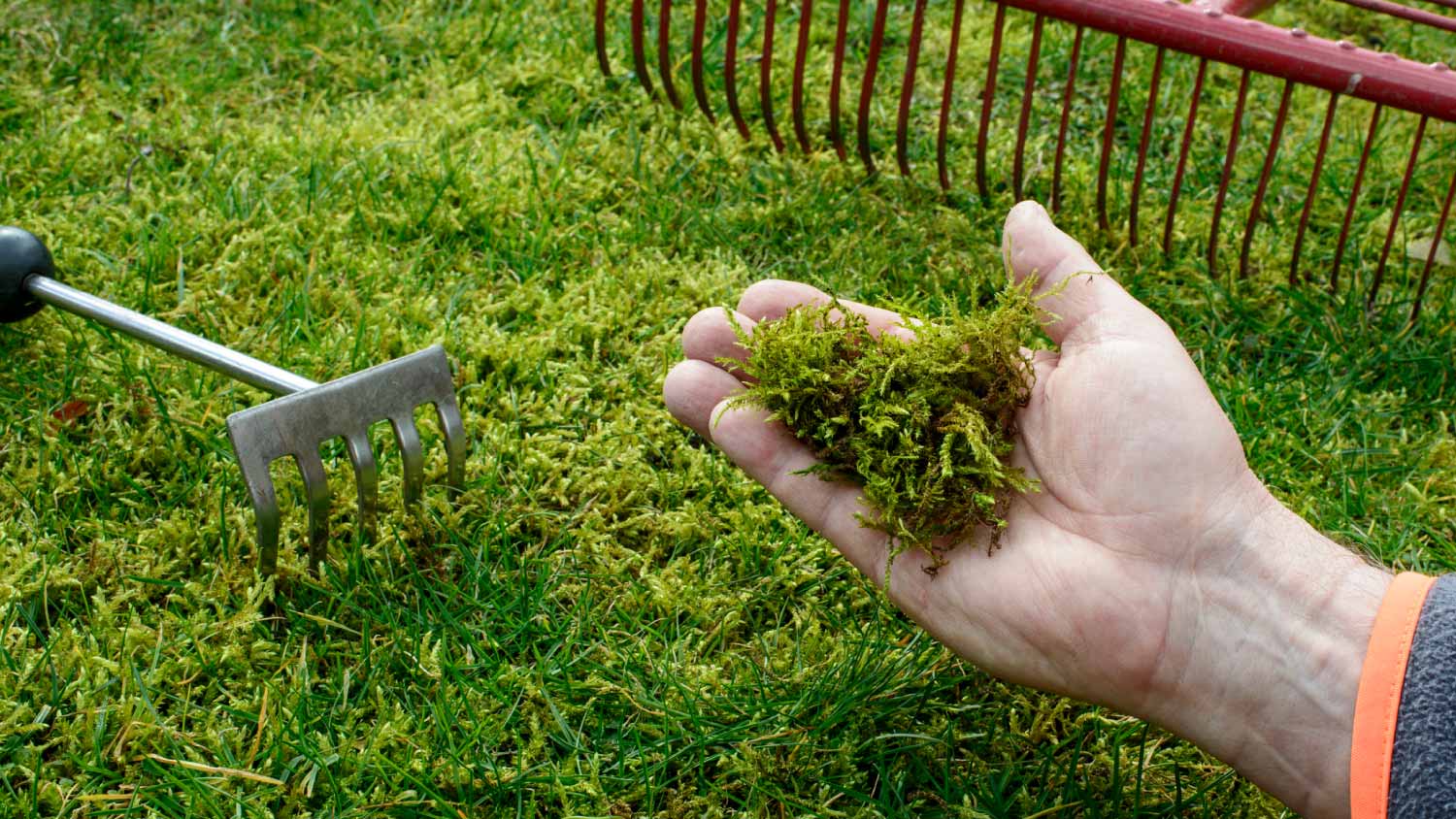
Moss grows exceptionally well in wet areas. If your backyard has soggy spots where water accumulates, you might notice that moss is overtaking any grass that can get a foothold in these areas. Grass prefers soil with good drainage, so if your yard is too wet, the grass will eventually die, and moss will take over.
The Solution
Consider regrading your yard to encourage water to drain away from your home. Alternatively, install a French drain to prevent water from pooling in certain areas of your yard. French drain installation costs $500 to $18,000 but will pay off in the long run by preventing water damage to your home and yard.
5. Thatch Buildup
Too much thatch in your yard adds a layer between the soil and turf, compacting the soil and preventing the grass from developing deep roots. In turn, this creates the ideal conditions for moss to grow.
The Solution
Dethatch your lawn using a dethatching rake or machine. Then, aerate the lawn to prevent future thatch buildup. Finish with a layer of topdressing to enrich the soil and encourage grass growth.
When to Call a Pro
If your moss problem is minor and you enjoy gardening, you should be able to fertilize the soil or dethatch the yard yourself. Even trimming a small tree is a doable DIY project if you have the right tools for the job.
However, if your moss is widespread and you’re overwhelmed, it’s best to call a local lawn care pro to help you achieve your dream lawn. Professional lawn care companies know the right kind of products to use to rid your lawn of moss once and for all. Plus, if you need to use a chemical pesticide to get rid of the moss, a pro will know how to use the product safely.
Frequently Asked Questions
Moss growing in a lawn is a sign of poor soil that makes it hard for grass and plants to grow. Moss thrives in these conditions and spreads easily, so it can quickly take over your yard if it’s lacking in nutrients, too wet, or has an excessive amount of shade. Moss in the lawn isn’t always a bad thing, but it can prevent turfgrass from forming deep roots.
Raking is one way to remove moss from your lawn. However, if you rake live moss, it can spread and exacerbate the problem. Instead, use a moss killer, then wait a couple of weeks before raking to ensure the moss is dead and can’t spread to other areas of your lawn.
The decision of whether or not to let moss grow in your yard depends on your preference. Moss is a lower-maintenance alternative to grass that looks green and lush but doesn’t require irrigation, fertilization, or mowing. Unlike grass, moss doesn’t attract pests, so it can keep your yard free from bugs as well. However, moss won’t stand up to heavy foot traffic as well as turfgrass.



